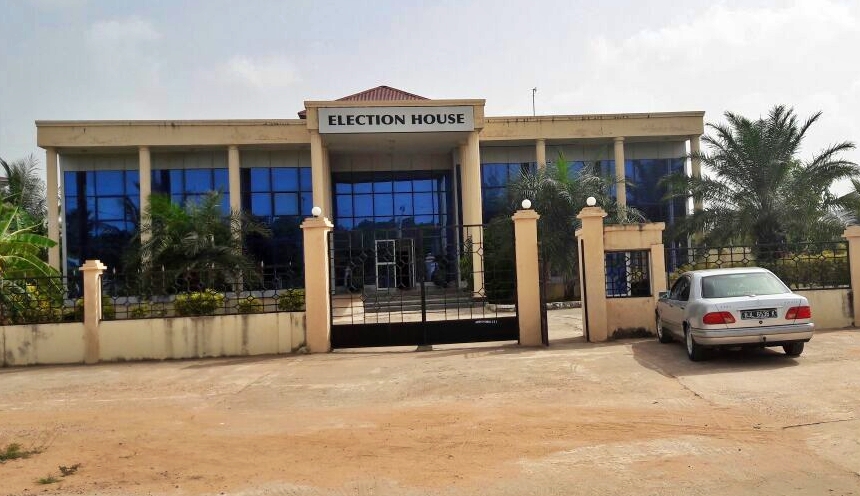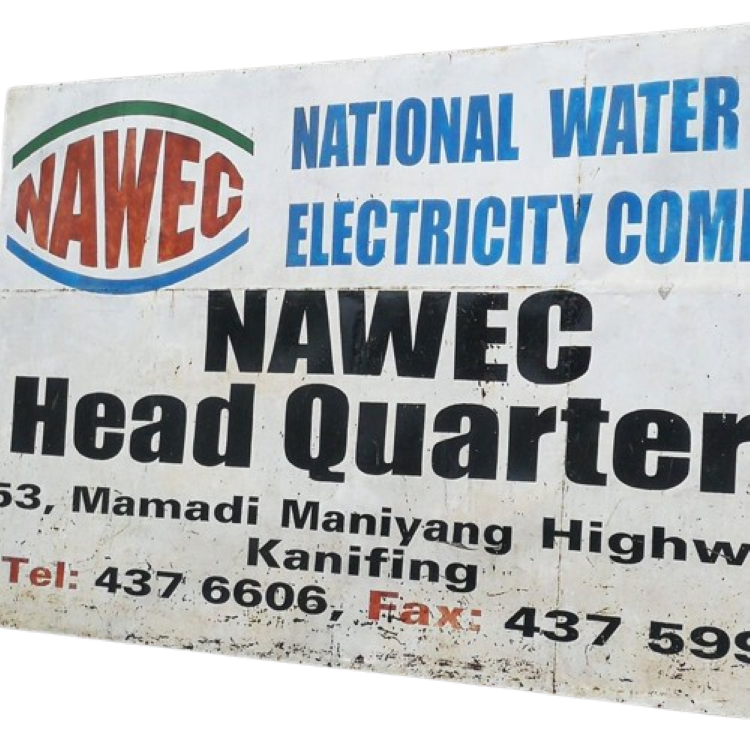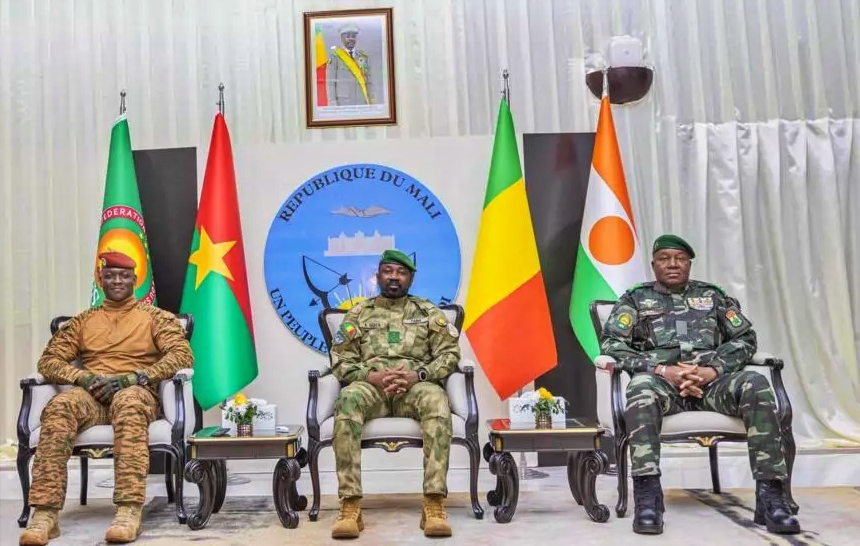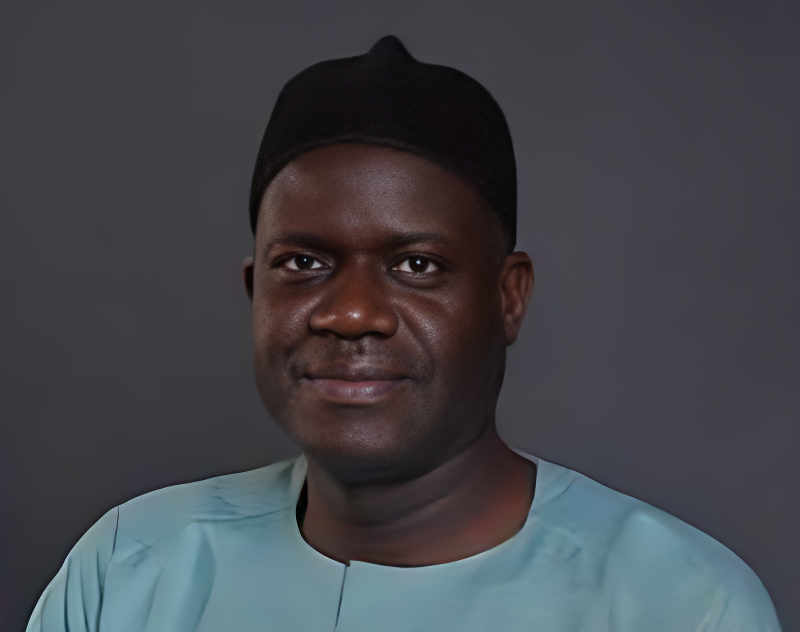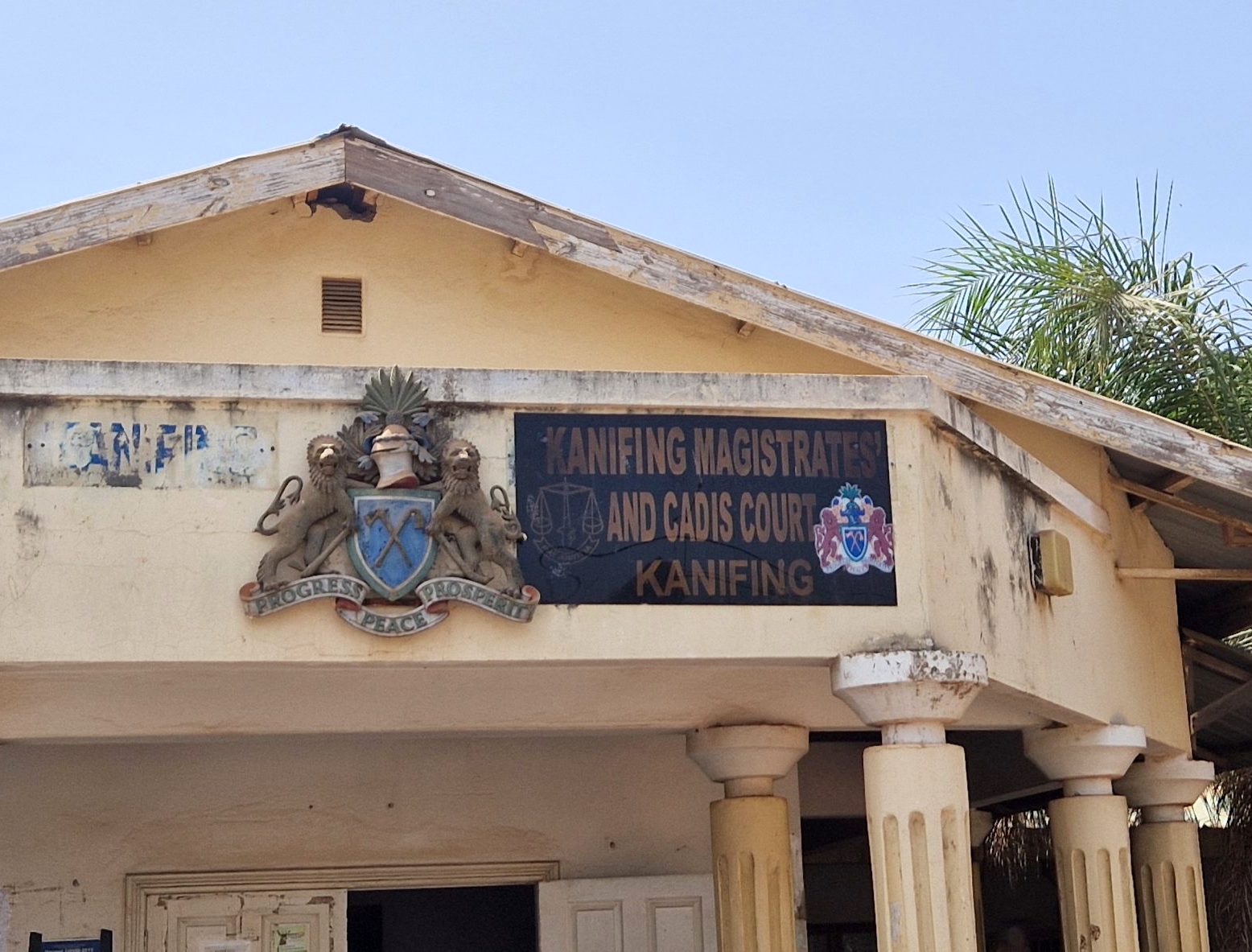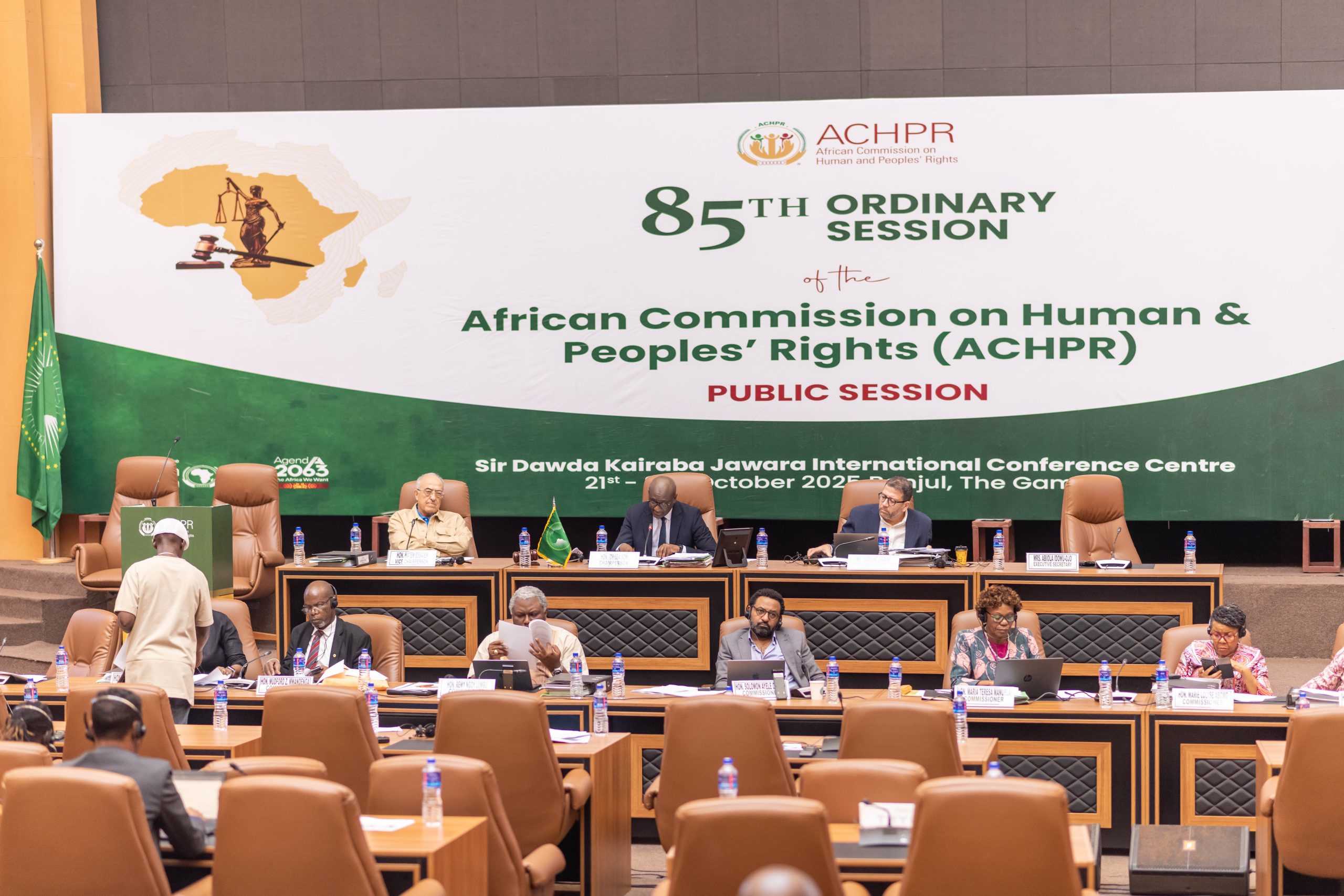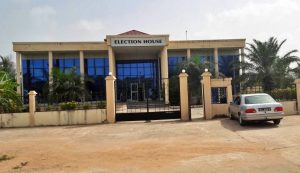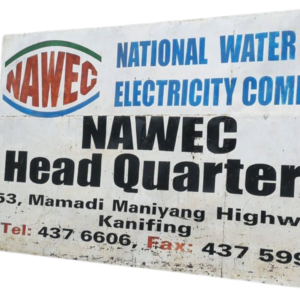Gambiaj.com – (BANJUL, The Gambia) – The African Commission on Human and Peoples’ Rights (ACHPR), widely known as the Banjul Charter, has concluded its 85th Ordinary Session in The Gambia after two weeks of intensive deliberations on human rights across the African continent.
The session, held in accordance with Article 64(2) of the African Charter on Human and Peoples’ Rights and Rule 27 of the Commission’s Rules of Procedure (2020), combined a virtual private session from 7 to 15 October 2025 and a physical public session in Banjul from 21 to 30 October 2025.
Private deliberations were also conducted on 28 and 29 October within the framework of the public session.
The session brought together the Commission’s members, including Gambia’s Hon. Janet Ramatoulie Sallah-Njie, who serves as the Special Rapporteur on the Rights of Women in Africa.
During its private meetings, the Commission examined and adopted several strategic and operational documents, including its Strategic Plan for 2026–2028, the report on its promotion mission to Seychelles, follow-up action points from the 84th Ordinary Session, and a status update on the study of the use of force in prisons.
Key Decisions, Resolutions, and New Partnerships
The Commission also adopted guidelines on the seizure of the African Court on Human and Peoples’ Rights, requests and applications for observer and affiliate status, the 2025 workplan implementation report and 2026 workplan, as well as reports from the Advisory Committee on Budgetary and Staff Matters and the Resolutions Committee.
It further reviewed a paper on Article 56(7) of the African Charter, a baseline report on the implementation of decisions on communications from 1994 to 2024, and two draft studies on mapping indigenous populations and ethnic, cultural, linguistic, and regional minorities in Africa.
During the session, the Commission examined twelve communications, declaring six admissible, three inadmissible, two struck out, and one requiring provisional measures.
It also adopted a series of resolutions, including three country-specific resolutions extending the mandate of the fact-finding mission on Sudan, calling for justice for victims of serious human rights violations in the Democratic Republic of Congo since 1997, and urging a ceasefire in the Palestinian occupied territories.
Four thematic resolutions were also adopted, addressing issues such as migration governance, the mapping of indigenous populations and minorities, and electoral integrity in Africa.
Additionally, three administrative resolutions were adopted, including the renewal of the mandate of the Special Rapporteur on Refugees, Asylum Seekers, Internally Displaced Persons and Migrants in Africa, and the reconstitution of both the Resolutions Committee and the Working Group on Communications.
In line with its resolution on affiliate status, the Commission granted the National Commission for Human Rights and Citizenship of Guinea-Bissau affiliate status.
It also granted observer status to six organizations: the African Disability Forum, Human Rights and Forest Brain Africa, Kutakesa Association (Movement of Human Rights Defenders of Angola), the Active Network for the Protection and Assistance of Internally Displaced Persons, MOSAIKO, and Voice of Women.
These additions bring the total number of NGOs with observer status to 592 and national and specialized human rights institutions with affiliate status to 39.
Leadership Elections and Broad Participation
The public session opened with the commemoration of Africa Human Rights Day on 21 October 2025, marking the entry into force of the African Charter. Shortly afterward, the Commission held elections for its new Bureau, selecting Honourable Commissioner Idrissa Sow as Chairperson and Honourable Commissioner Hatem Essaiem as Vice-Chairperson.
The newly elected Chairperson presided over the substantive proceedings, which included a press conference to launch the Commission’s Joint Fact-Finding Mission Report on the situation in Sudan.
According to the Commission’s communiqué, a total of 1,062 delegates attended the session, representing 29 state parties, organs of the African Union, international and intergovernmental organizations, national human rights institutions, NGOs, and media representatives.
Delegations from 16 state parties delivered statements on the human rights situation in their respective countries, while 14 national human rights institutions and 60 NGOs with observer status also made interventions.
The International Committee of the Red Cross and the Office of the United Nations High Commissioner for Human Rights were among the international organizations that addressed the session.
Thirteen state parties—among them Algeria, Angola, Côte d’Ivoire, Eswatini, Ethiopia, Eritrea, Kenya, Lesotho, the Sahrawi Arab Democratic Republic, Senegal, South Africa, Uganda, and Zimbabwe—exercised their right of reply.
Panel Discussions, Reports, and Next Steps
The Commission organized a series of panel discussions on key human rights themes, including the 60th anniversary of the International Convention on the Elimination of All Forms of Racial Discrimination, migration management, the right to a healthy environment, the protection of older persons and persons with disabilities, extrajudicial killings in counterterrorism contexts, and reparations in Africa.
Other discussions focused on strategies for advancing the implementation of ACHPR decisions and advocacy for the ratification of continental treaties.
The session also featured the launch of several new publications, including the 18th Newsletter on Policing and Human Rights, the fourth edition of the Newsletter of the Special Rapporteur on the Rights of Women in Africa, and the 2025 Newsletter of the Committee for the Prevention of Torture in Africa.
The Commission presented the status of state reporting under Article 62 of the African Charter, revealing that seven countries are up to date, four are under review, thirteen have one overdue report, four have two overdue reports, one has three, nineteen have more than three overdue reports, and six have yet to submit their initial reports. It also considered periodic reports from Botswana, Egypt, and Tunisia.
Additionally, the Commission noted that while 38 national institutions have been granted affiliate status, 30 of them have overdue activity reports.
Members of the Commission presented their intersessional reports outlining activities undertaken as commissioners, country rapporteurs, and special mechanism mandate holders. These presentations generated responses from state delegates, national human rights institutions, and civil society organizations.
The Commission announced that its 86th Private Ordinary Session will be held virtually, with details to be published on its website. In its closing statement, the Commission expressed deep appreciation to all states, institutions, and civil society actors who participated in the session and extended special gratitude to President Adama Barrow, the government, and the people of The Gambia for their hospitality and support in hosting the meeting.



